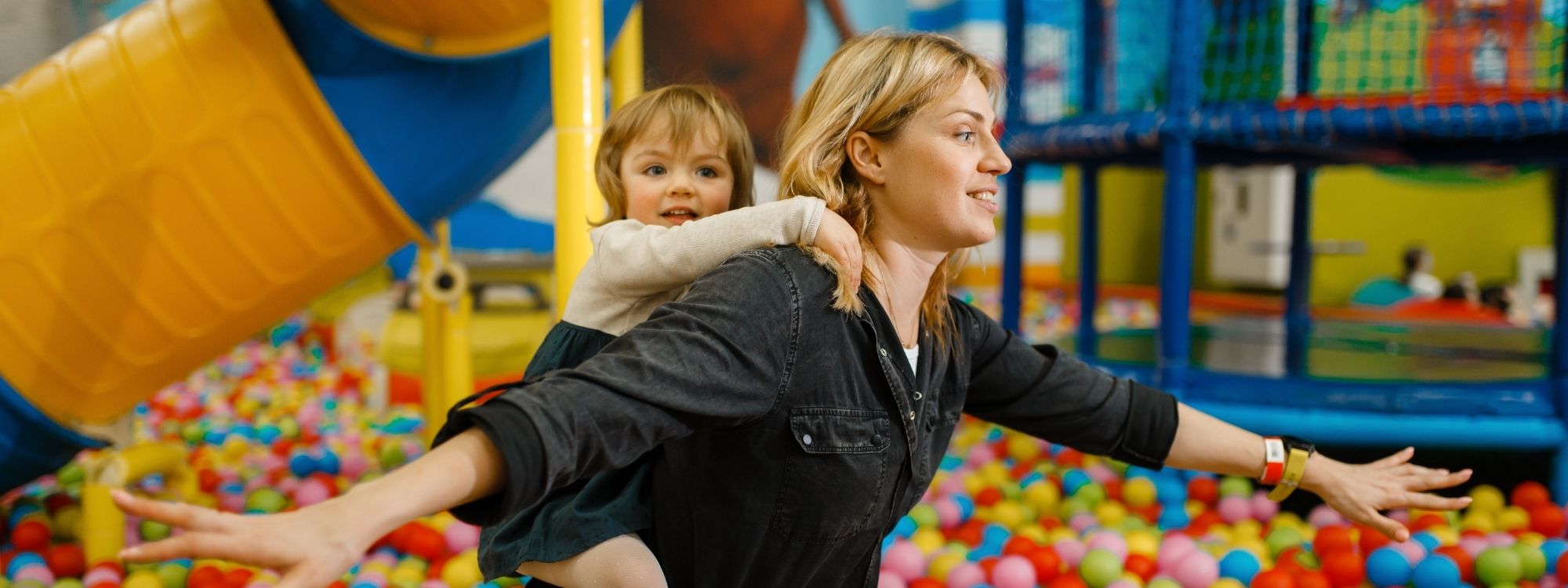When to Worry About Speech Delay: Key Signs and Guidance
Speech and language development is one of the most critical aspects of a child’s early growth. While children often progress at their own pace, there are times when speech delays may indicate a more significant concern. As a parent, it can be difficult to know when to wait and when to take action. Understanding the general milestones, risk factors, and red flags in speech and language development can help you support your child in the most effective way possible.
This guide is designed to help parents recognize when a speech delay may warrant further attention and how to seek help when necessary. We’ll explore common causes, signs to watch for, the role of speech therapists, and how early intervention can make a major difference in your child’s communication abilities and development.
Introduction to Language Development
Language development begins in infancy and includes much more than just talking. It involves listening, understanding, imitating, and producing words. While children develop at their own pace, there are general milestones based on age. For instance, most children say simple words like “mama” or “bye-bye” around 12 months, and by age 2, they should begin combining two-word phrases like “more milk.” When these milestones are missed or if progress seems to stall, it may signal a speech delay or language development concern.
Speech-language pathologists specialize in identifying and treating communication disorders. They partner with families to create tailored strategies that support each child’s unique needs. For children with noticeable delays, early intervention can make a major difference by addressing issues during the most critical stages of brain development.
Understanding Your Child’s Speech
Speech development in children can vary widely, but there are common signs that can indicate a delay. A child may struggle to imitate sounds, form simple words, or respond to basic verbal requests and simple commands. They might also show difficulty understanding instructions or communicating with familiar listeners.
There are many potential influences on a child’s speech development. Hearing problems, developmental disorders like autism spectrum disorder, or neurological conditions such as cerebral palsy may all play a role. Parents should also be aware that family history, premature birth, and bilingual environments can influence the rate of speech development.
Speech therapists often start by evaluating whether a child is hitting typical communication milestones. These might include:
- Babbling or cooing by 6 months
- Saying single words by 12 months
- Using two-word phrases by 24 months
- Following simple directions by age 2
Children who do not demonstrate these skills on time may benefit from an early speech and language evaluation, particularly if your child is having trouble making sounds.
Causes of Speech Delays
Speech delays can stem from a wide variety of causes, some temporary and others more persistent. Understanding the root of a delay helps determine the best path forward.
Some of the most common causes of speech delay include:
- Hearing loss: Children who cannot hear clearly may struggle to imitate and produce words.
- Developmental disorders: Conditions like autism spectrum disorder and intellectual disabilities often involve delayed communication.
- Neurological conditions: Cerebral palsy or other brain injuries can affect the muscles used for speaking.
- Genetic or inherited factors: A family history of language problems can increase the likelihood of a delay.
- Premature birth: Babies born early may have delays in reaching developmental milestones.
- Environmental factors: Limited interaction or exposure to language can also impact development.
It’s important to remember that a speech delay is not always a sign of a larger disorder. Some children, known as “late talkers,” simply develop speech more slowly but catch up with time and support. A speech-language pathologist can help determine when to worry about speech delay, whether a delay is cause for concern, or part of a child’s natural pace.
Signs of Language Delays
Language delay can show up in many ways, and it often goes beyond just a lack of speech. It may include difficulties in understanding, expressing, or using language effectively.
Parents should watch for these signs:
- Limited vocabulary for the child’s age
- Difficulty forming words or phrases
- Trouble following simple instructions, such as “bring the ball.”
- Lack of gestures, such as pointing or waving
- Difficulty communicating needs using words or simple verbal requests
For example, by age 2, most toddlers should be able to say at least 50 words and combine them into short phrases. If your child is not saying any words or seems to struggle with basic communication, it may indicate a language delay. Left unaddressed, language delays can lead to broader communication difficulties that affect social interaction and learning.
Speech and Language Development
Speech and language skills are interrelated but distinct. Speech refers to the sounds we make to form words, while language includes the words we use and how we use them to communicate.
Delays in one area often affect the other. A child who cannot pronounce words clearly may have difficulty being understood, which can limit their language use. Conversely, a child who doesn’t understand language well may not speak as much.
Typical development includes:
- By 12 months: First words, response to name, simple gestures
- By 18 months: 10–20 words, ability to follow simple instructions
- By 24 months: Two-word phrases, vocabulary of 50+ words
- By 36 months: Use of sentences, 75% understandable to familiar listeners
If your child is missing multiple milestones or regressing, it’s important to consult with a professional. Early speech therapy can strengthen both speech and language skills through exercises, games, and parent-led interaction strategies.
Communication Skills and Social Interaction
Speech delays don’t just affect talking; they can impact a child’s ability to interact socially, build relationships, and understand others. Communication is essential for expressing needs, emotions, and participating in everyday situations.
Children with delayed speech may show:
- Difficulty initiating or maintaining eye contact
- Trouble engaging in pretend play or conversation
- Frustration when not understood
- Reliance on gestures or pointing instead of speaking
To support communication skills, parents can respond consistently to sounds, gestures, and vocalizations. Simple strategies like reading aloud, narrating daily routines, and expanding on your child’s speech (“You want juice? Let’s get some juice!”) help build strong communication foundations.
Identifying Late Talkers
A “late talker” is a toddler (typically between 18 to 30 months) who has a good understanding of language and non-verbal communication but uses fewer spoken words than expected. Late talking can be temporary, especially if a child has recently begun saying their first words, but it still warrants observation and potentially professional support.
Warning signs of late talking include:
- Not saying any single words by 16 months
- Not using two-word phrases by age 2
- Trouble imitating sounds or responding to speech
Speech-language pathologists can determine whether your child is simply developing at their own pace or if there’s a more significant issue at hand. For many children, short-term speech therapy and regular home-based practice can result in significant improvement.
Impact of Hearing Problems
Hearing issues are one of the most overlooked causes of delayed speech. Even mild or intermittent hearing loss from chronic ear infections can make it difficult for children to hear speech sounds clearly, affecting their ability to imitate and produce language.
Signs of possible hearing problems include:
- Not reacting to sounds or names being called
- Difficulty following simple directions
- Unusual tone or volume in speech
Early hearing screenings are critical, especially if speech development is behind. If hearing loss is detected, speech therapy and medical treatment can work together to help children catch up in language skills.
Supporting Speech Development at Home
Parents play a vital role in encouraging speech and language growth. There are many simple, everyday ways to promote communication at home:
- Talk frequently to your child during daily routines
- Read books and name objects on each page
- Encourage gestures and facial expressions alongside words
- Label objects and actions around the home
- Respond to coos, babbling, and early words to reinforce interaction
A language-rich environment can make a powerful difference. Make speech part of your playtime and offer plenty of opportunities for your child to hear, respond to, and experiment with words.
Late Talkers and Long-Term Outcomes
Not all late talkers require long-term therapy, but early evaluation can help you make informed choices. Some children catch up quickly; others benefit from ongoing support to build vocabulary, sentence structure, and social communication.
The most important takeaway is not to wait. If you’re concerned, speak with a professional. The earlier your child receives support, the better the outcome. Most children who receive speech therapy early go on to develop effective communication skills.
Overcoming Speech and Language Challenges
Speech and language challenges can be frustrating, but they are also manageable with the right tools and support. Parents, speech-language pathologists, teachers, and pediatricians all play key roles.
Effective treatment often includes:
- Early diagnosis and assessment
- One-on-one or group-based speech therapy
- Parent training and coaching
- Consistent language practice at home
With a collaborative approach and patience, many children overcome their speech delays and thrive in school and social settings.
Conclusion
Speech delays can be overwhelming, but early recognition and support make a meaningful difference. By staying informed about developmental milestones, as outlined in this blog post, building a language-rich environment, and partnering with a speech therapist, parents can take confident steps to support their child’s growth and communication skills.
Worried About a Speech Delay? We’re Here to Help. At Champions ABA, we understand how concerning delayed speech can be. Our personalized, evidence-based programs support children with communication challenges, whether related to speech delay, autism, or developmental needs, and can also include support for family members. If you’re looking for early guidance or professional evaluation, our caring team is ready to support your family. Call (877) 242-1744 or visit our website to take the next step.
FAQs
How much speech delay is normal?
Some speech delay is considered within the range of normal if a child is only slightly behind in hitting milestones. However, delays of more than a few months or a lack of progress over time may signal a problem. If in doubt, it’s best to consult a speech therapist.
What are the red flags for speech delay?
Red flags include no babbling by 12 months, no single words by 16 months, and no two-word phrases by age 2. Children who struggle to understand instructions or rely solely on gestures should also be evaluated. Regressing speech is another cause for concern.
When is delayed speech a concern?
Speech delay is concerning when it significantly affects your child’s ability to communicate or understand others. If your child is not progressing or is missing multiple speech and language milestones related to speech delay, professional assessment is recommended.
At what age should you worry about speech?
You should be concerned if your child is not speaking by 16 to 18 months or is not combining two-word phrases by 24 months. Delays at this stage can benefit from early intervention. Waiting too long may make it harder to close the gap later.
Can a child outgrow a speech delay?
Some children who are late talkers do catch up, especially with supportive environments. However, a professional evaluation can help rule out underlying issues and ensure nothing is missed.
Does speech delay always mean autism?
No. While autism can involve speech delays, many children with speech delays do not have autism. A speech-language pathologist can help determine the cause.



